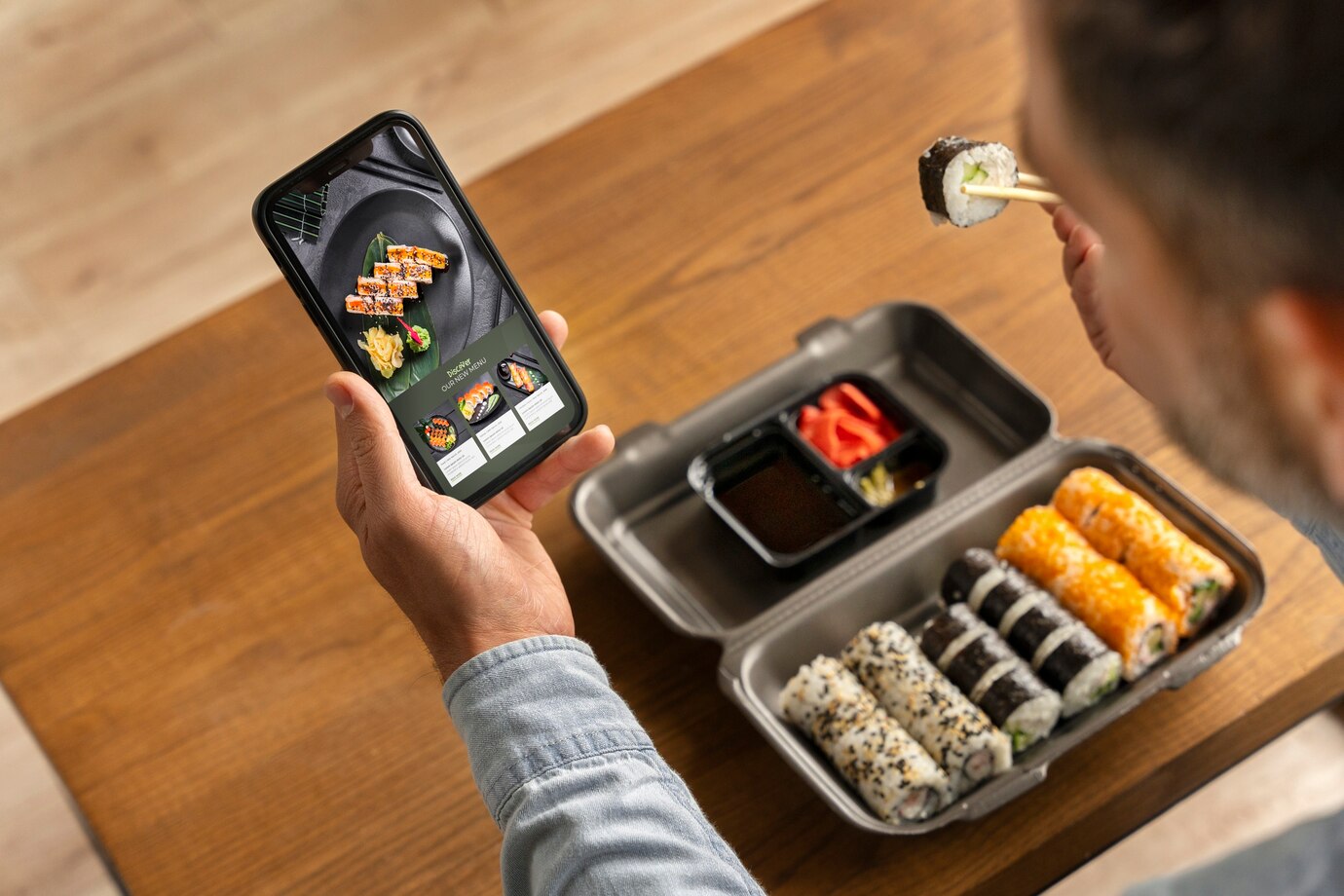In a rapidly evolving digital landscape, virtual food catering experiences are revolutionizing the culinary industry by offering innovative solutions that combine convenience, cost-effectiveness, and sensory delight. Read More
This article explores how tech-savvy tastings are redefining traditional catering practices, making gourmet dining accessible anytime, anywhere.
The Reality of Virtual Food Catering
Virtual food catering leverages digital platforms and immersive technologies to bring restaurant-quality dining experiences directly to customers’ homes or offices. Through live-streamed cooking demonstrations, interactive tasting sessions, and personalized menus, caterers can engage guests in real-time, offering a sense of presence and personalization akin to traditional dining.
Convenience Redefined
- Remote Accessibility:
- Benefit: Guests can participate in virtual tastings from any location, eliminating the need for physical attendance at events or venues.
- Example: A catering startup in Silicon Valley hosts virtual wine and cheese pairing sessions, allowing participants to join from home and interact with sommeliers and cheese experts via live video streams.
- Flexible Scheduling:
- Benefit: Virtual catering accommodates varying schedules and time zones, making it easier for clients to plan and enjoy culinary experiences at their convenience.
- Example: A corporate catering service in London offers virtual lunch meetings with customizable menus, enabling remote teams to collaborate over gourmet meals without logistical constraints.
Cost-Effectiveness Through Efficiency
- Reduced Overhead Costs:
- Benefit: Virtual food catering eliminates venue rental fees, staffing expenses, and logistical complexities associated with traditional events, resulting in significant cost savings.
- Example: An event management company in New York City organizes virtual cocktail receptions for corporate clients, optimizing budget allocation towards premium ingredients and personalized experiences rather than venue logistics.
- Scalable Operations:
- Benefit: Catering startups can scale operations efficiently by serving a larger audience through virtual platforms, thereby maximizing revenue potential without compromising service quality.
- Example: A gourmet food delivery service in Tokyo offers virtual sushi-making workshops, accommodating multiple participants simultaneously and expanding outreach beyond local clientele to global sushi enthusiasts.
Enhancing Engagement and Interactivity
- Interactive Culinary Experiences:
- Benefit: Virtual tastings facilitate interactive engagement through live chef demonstrations, ingredient tutorials, and Q&A sessions, fostering a deeper connection between guests and culinary experts.
- Example: A specialty tea company in Shanghai hosts virtual tea tastings, guiding participants through the sensory nuances of different tea varieties and cultural traditions via interactive video conferencing.
- Personalized Menus and Experiences:
- Benefit: Caterers can curate personalized menus based on dietary preferences, cultural influences, and thematic concepts, enhancing guest satisfaction and culinary exploration.
- Example: A virtual dessert catering startup in Paris offers customizable pastry boxes with artisanal treats delivered nationwide, complemented by virtual dessert pairing sessions that educate and delight participants.
Sustainability and Accessibility
- Environmental Impact:
- Benefit: Virtual food catering reduces carbon emissions associated with transportation and venue operations, supporting sustainability goals through eco-friendly dining alternatives.
- Example: A sustainable catering initiative in Amsterdam promotes virtual plant-based cooking classes, inspiring participants to embrace eco-conscious eating habits and reduce their carbon footprint.
- Global Reach:
- Benefit: Virtual platforms enable caterers to reach a global audience, promoting cultural diversity and culinary appreciation on an international scale.
- Example: A virtual wine cellar in Bordeaux offers guided wine tasting experiences, showcasing regional vintages and vineyard stories to enthusiasts worldwide through immersive virtual tours and tastings.
Embracing Innovation for Future Growth
Virtual food catering experiences represent a paradigm shift in the catering industry, blending culinary artistry with digital innovation to meet evolving consumer preferences and technological advancements. By embracing virtual platforms, caterers can transcend geographical boundaries, optimize operational efficiency, and deliver exceptional dining experiences that redefine convenience, cost-effectiveness, and sensory exploration in a digital world.
As technology continues to evolve, the future of virtual food catering promises continued innovation and expansion, driving the convergence of gastronomy and digital connectivity to create unforgettable culinary journeys for food enthusiasts globally.

